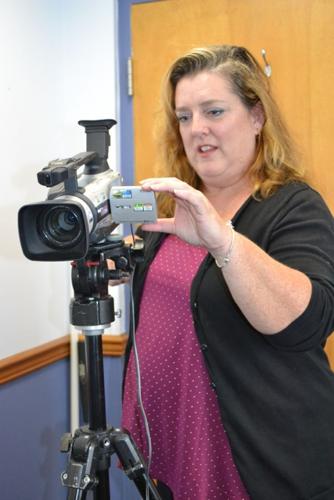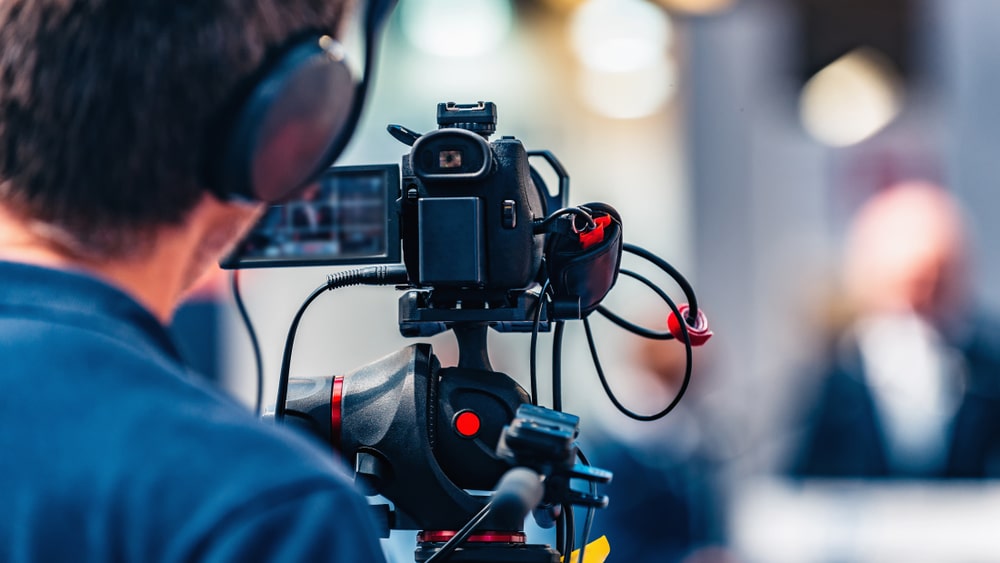7 expert tips from legal videographers on making high-impact jury video presentations
Checking Out the Various Kinds of Legal Videographers and Their One-of-a-kind Offerings
Legal videographers play a crucial function in the judicial process, each specializing in distinctive facets of court documents. Their know-how varies from catching witness statements to improving trial discussions. Comprehending the varied offerings of these specialists can brighten their payments to legal proceedings. As the intricacies of contemporary litigation grow, the relevance of their functions comes to be progressively apparent. What details features do these videographers offer, and just how do they affect the results of cases?
Recognizing Legal Videography
Legal videography plays an important role in the judicial procedure, offering aesthetic documents that can enhance the clarity and precision of legal procedures. This specific area entails catching video clip recordings of various legal events, such as tests, hearings, and various other substantial minutes within the legal system. Legal videographers make use of sophisticated tools and strategies to ensure premium video footage, which can serve as essential evidence during litigation.Understanding legal videography requires recognizing its significance in conveying info in an aesthetic layout. The videotaped video can help juries and judges much better understand the context and subtleties of testimonies and occasions, possibly influencing judgments. Additionally, legal videographers should comply with strict guidelines and requirements to preserve the stability of the recordings. Their job not only aids in preserving a detailed account of process but likewise adds to the total openness and liability within the legal framework, making sure that justice is served properly.
Deposition Videographers
Deposition videographers play an essential role in legal procedures by tape-recording witness testaments for future recommendation. They utilize specialized tools and techniques to assure top quality video documentation that properly captures the nuances of each deposition. Comprehending their methods and the value of their job can enhance the effectiveness of legal presentations.
Role in Legal Process
While commonly neglected, the duty of videographers in legal process is necessary, especially during depositions. These professionals record witness statements, catching both spoken and non-verbal signs that can be critical in court. Their recordings function as a precise representation of the deposition, providing a reputable recommendation for lawyers and courts. Videographers assure that the setting is professional, minimizing interruptions and sticking to legal criteria. They are educated to manage different circumstances, consisting of unexpected disturbances or technological difficulties, safeguarding the stability of the taped material. Furthermore, the presence of a videographer can discourage incredibly elusive actions from witnesses, promoting more candid reactions. On the whole, their contributions significantly improve the quality and efficiency of legal process.
Equipment and Techniques Used
The tools and strategies utilized by deposition videographers are crucial for generating premium recordings that accurately capture witness testaments. Professional-grade cameras, commonly with 4K resolution, guarantee clear visuals, while high-fidelity microphones capture audio without distortion. Videographers normally utilize tripods for security and lighting tools to enhance visibility, particularly in less-than-ideal setups. Techniques such as mounting the witness correctly and preserving suitable angles are essential for sharing body language and expressions. Lots of deposition videographers likewise utilize digital editing and enhancing software application to boost the final product, guaranteeing clarity and coherence. Additionally, they might include time-stamping and comments throughout post-production to promote referral during legal process, ultimately supplying a complete and trustworthy record of the deposition.
Test Discussion Videographers
Test presentation videographers play an essential role in courtroom setups by effectively picturing proof and improving the narration procedure. Using innovative innovation and customized equipment, they develop compelling presentations that assist courts and courts comprehend complicated information. Their competence in efficient storytelling methods better elevates the effect of legal arguments throughout tests.
Role in Court Room Settings
Regularly, legal videographers play a necessary function in courtroom settings by capturing and presenting aesthetic proof that improves the clarity of legal arguments. These professionals specialize in documenting witness statements, depositions, and essential evidence, making certain that the process are accurately tape-recorded for future referral. Their work not only aids in the instant presentation of cases yet also serves as an important resource during charms or evaluations. Test presentation videographers meticulously put together and edit footage to create compelling visual stories that lawyers can utilize to persuade discretionary. By integrating visual elements into the trial, they substantially add to the general efficiency of the legal process, helping with a much more educated decision-making setting within the court.
Modern Technology and Tools Made Use Of
Modern test presentation videographers rely on advanced innovation and specialized tools to effectively capture and existing proof in the court. High-def cams are frequently utilized to assure that every detail is tape-recorded with clarity, while discover here several video camera angles can improve the aesthetic story. Videographers frequently use wireless microphones to record clear sound from witnesses and attorneys, minimizing distractions. Additionally, sophisticated software program devices enable real-time modifying and seamless integration of video, photos, and displays throughout presentations. Projectors and large displays are frequently utilized to display content in an engaging manner, making sure that jurors and judges can quickly comply with the procedures. This combination of innovation and devices is important for developing impactful courtroom presentations that facilitate understanding and retention of details.
Reliable Storytelling Strategies
Recording high-grade video clip and sound is just the starting for test presentation videographers; efficient narration techniques play a critical duty in conveying complicated legal stories. These specialists utilize different techniques to enhance the clearness and influence of the material presented. By carefully structuring the aesthetic and audio elements, they develop a coherent circulation that guides jurors with the truths of the situation. Utilizing strategies such as thematic framing, psychological allure, and logical progression, they emphasize bottom lines and reinforce the total disagreement. Furthermore, incorporating visuals, such as representations or computer animations, can simplify complex principles and maintain the target market involved. Eventually, trial discussion videographers transform raw video into compelling stories that reverberate with jurors, facilitating informed decision-making in the courtroom.
Video Proof Specialists
Video clip proof experts play an essential function in the legal process, making certain that visual recordings are precisely recorded, maintained, and presented in court. These specialists are educated to manage a selection of tape-recording tools and techniques tailored especially for legal setups. They concentrate on getting top notch recordings that can endure scrutiny, sticking to stringent procedures to maintain the integrity of the evidence.Often entailed in the documentation of criminal offense scenes, depositions, and witness statements, video evidence professionals are knowledgeable in developing video that is both clear and trustworthy. They are likewise educated concerning legal standards and requirements, making certain that their work adheres to jurisdictional laws. In addition, these professionals might aid in the post-production procedure, editing and enhancing and format videos for best presentation. Their competence help attorneys in efficiently communicating their instances, making the role of video proof professionals vital in the pursuit of justice.
Courtroom Videographers
While the court room usually works as the phase for vital legal proceedings, court videographers guarantee that these minutes are documented with precision and clearness. Their primary role is to record all aspects of a trial, including witness testimonies, opening up and closing declarations, and jury responses. Utilizing specific tools, court room videographers assure that audio and video high quality fulfill the standards needed for legal documentation.These experts are proficient at the office unobtrusively within the court room environment, steering with the necessary protocols and preserving the integrity of the legal procedure. They often work together very closely with lawyers to comprehend certain requirements, ensuring that important aspects are videotaped for future reference.Furthermore, courtroom videographers play a necessary duty in preserving the credibility of the procedures, supplying an important source for allures or additional lawsuits. Their competence assurances that all taped product acts as visit this site right here a reliable account of the courtroom events for all parties included.

Post-Production Providers and Editing

After the courtroom proceedings are tape-recorded, the focus shifts to post-production services and editing, which play a substantial function in fine-tuning the captured material. Legal videographers use specialized software application to improve video high quality, making certain clarity and professionalism and trust. This phase typically includes shade adjustment, audio improvement, and the removal of any type of additional video footage, developing a meaningful narrative that straightens with legal standards.Additionally, videographers might integrate graphics, annotations, or captions to supply context or highlight critical info. The editing procedure likewise involves organizing the video chronologically or thematically, making it less complicated for legal you can try here groups to reference specific segments during tests or depositions. Legal videographers usually prepare last edits in different layouts to accommodate various systems and usages, making sure availability for all stakeholders involved. Eventually, effective post-production solutions are vital for creating high-grade legal videos that sustain the case available.
Often Asked Inquiries
What Credentials Should I Look for in a Legal Videographer?

Just How Do Legal Videographers Ensure Video Top Quality and Reliability?
Legal videographers guarantee video quality and integrity through high-definition equipment, cautious illumination, and sound management - legal videographers. They also comply with legal requirements, make use of back-up systems, and perform thorough pre-production planning to reduce prospective problems throughout recordings
What Equipment Do Legal Videographers Usually Utilize?
Legal videographers generally use high-definition video cameras, tripods for stability, external microphones for clear audio, and illumination equipment to enhance presence. They may likewise utilize editing software program to assure sleek and specialist end products for legal procedures.
The length of time Does the Modifying Process Usually Take?
The editing and enhancing procedure for legal videographers normally differs, varying from a few hours to several days. Elements such as video clip intricacy, needed quality, and certain client requests substantially affect the overall time dedication required for completion.
Are Legal Videographers Aware Of Court Etiquette?
Legal videographers typically have a solid understanding of court room decorum - legal videographers. Their training frequently consists of knowledge of appropriate habits, equipment placement, and respect for legal process, guaranteeing their work aligns with the official ambience of the court room